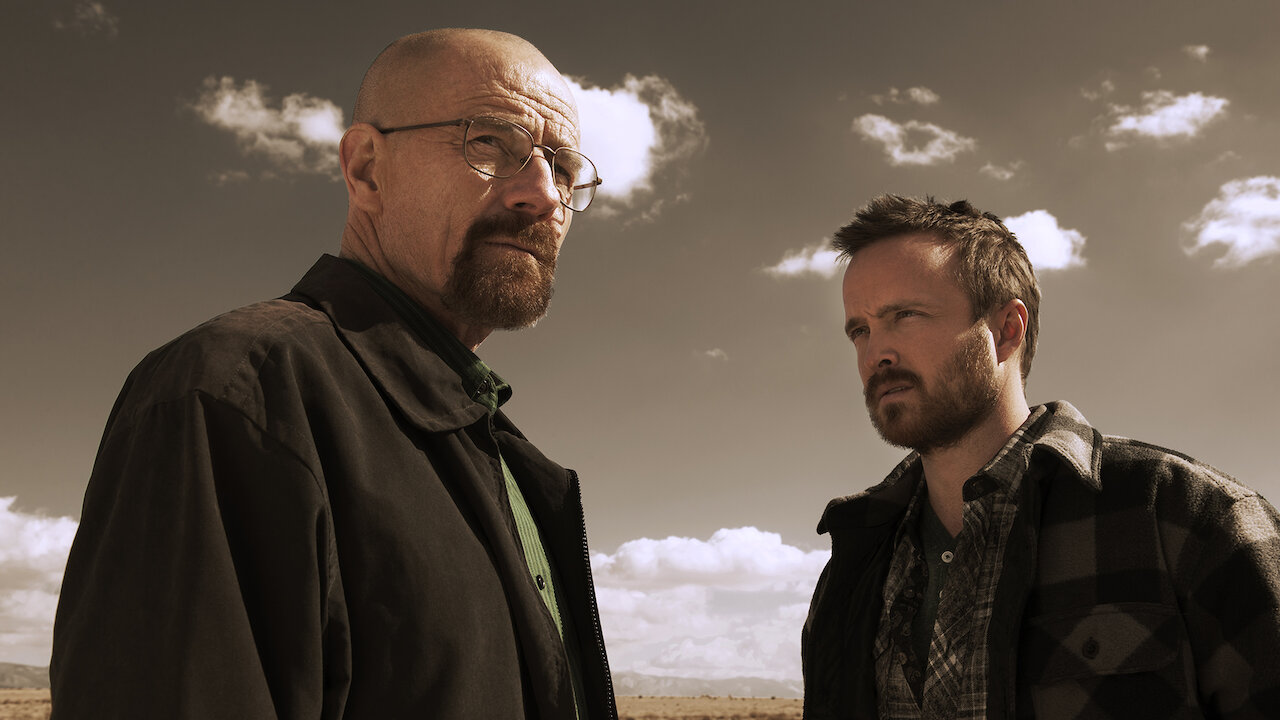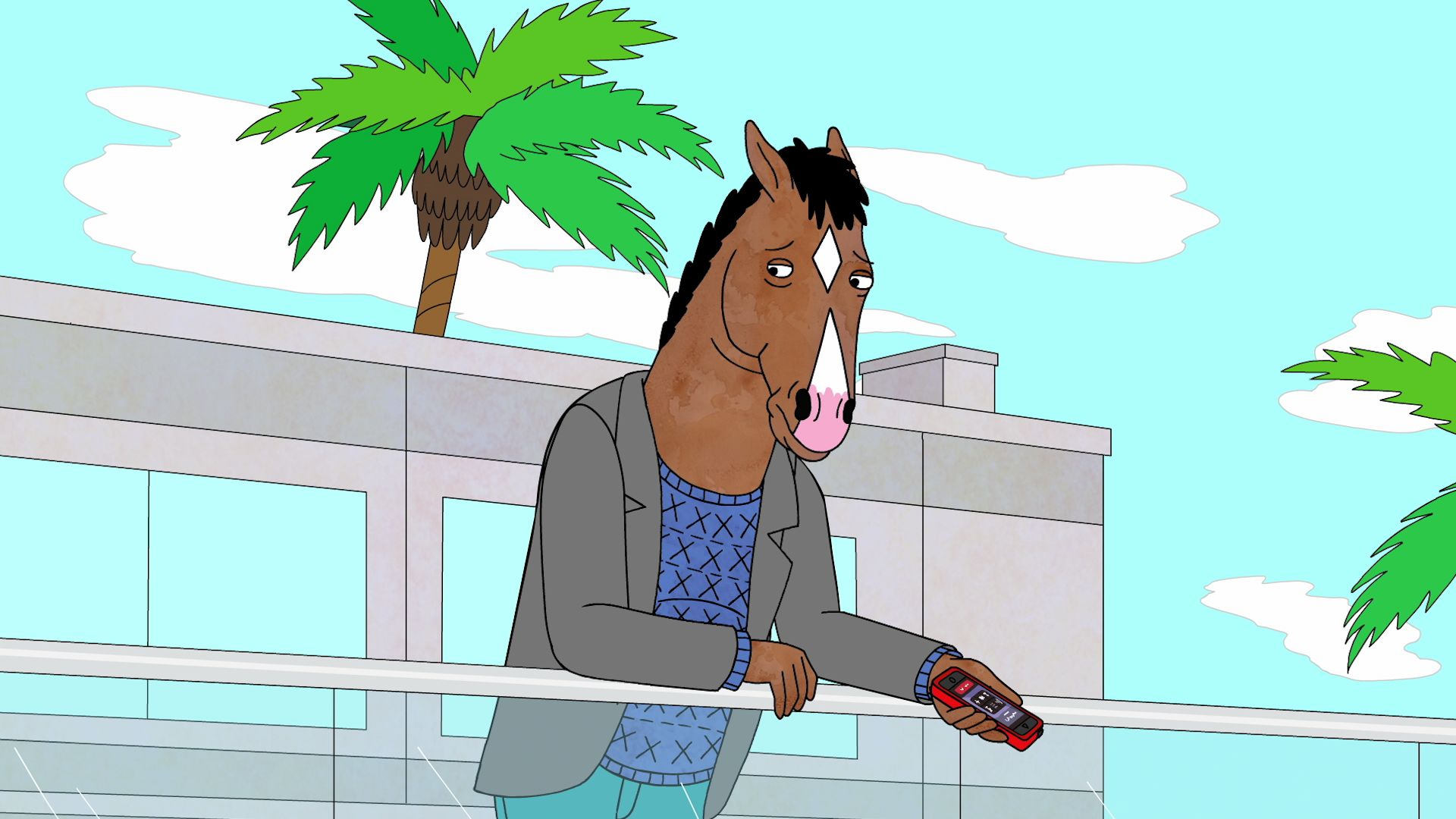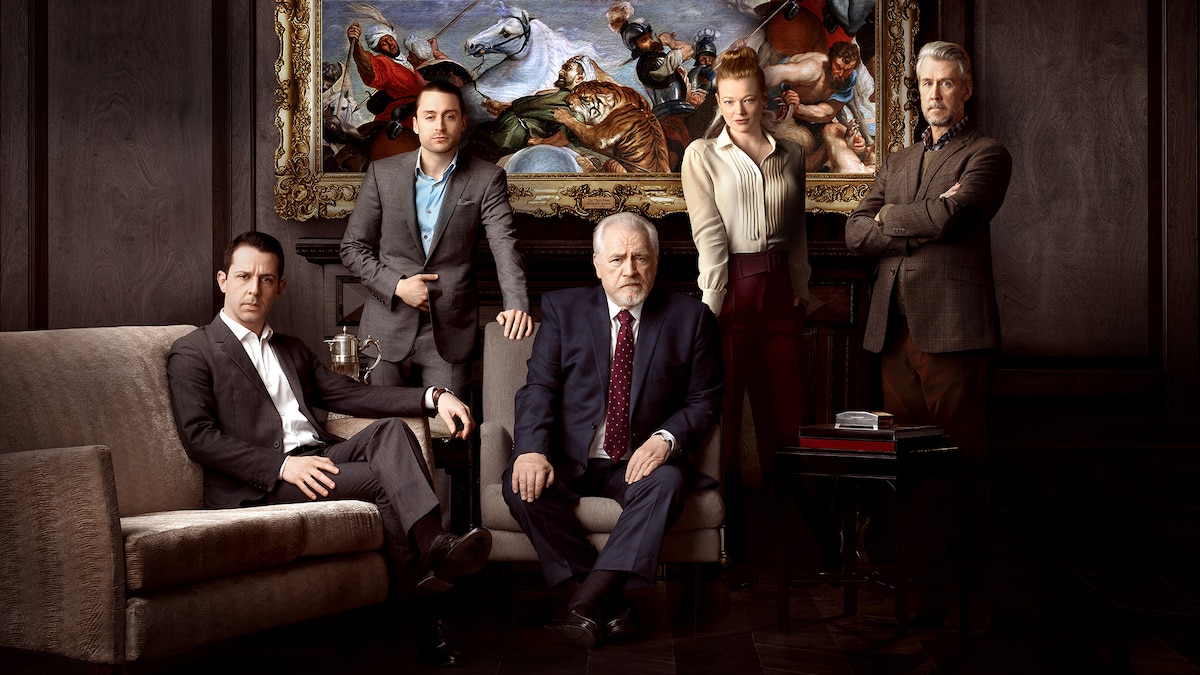It’s impossible to have an objective opinion on this topic. There’s no reality where I can provide what I believe to be the ten greatest television shows of all time without being completely biased or emotional. This list is entirely preferential, and though I believe it to be factually correct, it’s still based on my own views. Drama tends to feature heavily in these types of lists, because drama naturally has to delve deeper into the human experience, so I’ve tried to balance it out with comedic shows, which I believe offer as much of a cultural commentary as their dramatic counterparts.

10 – Friends
No matter where I am in the world, no matter the mood I am in, if Friends is on the TV I’m going to watch it. I don’t care what episode it is, just put the damn show on the screen. I want to watch the ultimate 90s sitcom where nothing bad ever really happens. It’s six attractive people living in New York with enough money to have a fun time but not so much that they don’t need to try. The chemistry between the cast was real, and they all played off each other so well. I was always drawn to Matthey Perry’s sarcastic and witty Chandler, and that is part of the beauty of the show; we all had our character but they needed each other to balance it out. Watching it in recent years, Friends does show its age a little, but it’s thirty years old now so I can let it slide. The nostalgia is strong, it’s timeless in the sense of friendships and love, and its impact was enormous, it even gave us coffee culture. Also, they were on a break!
:max_bytes(150000):strip_icc()/Its-Always-Sunny-In-Philadelphia-15-The-Gang-Saves-the-Day-0795ab99679a473ba4d93d15a4a09045.jpg)
9 – It’s Always Sunny in Philadelphia
Five awful people surrounded by mostly awful people in the streets of Philly. That’s the show. The gang always gets into trouble, rarely trying to do the right thing to begin with. They’re all disgusting and reprehensible individuals, but they do it with a smirk, and I love it. These aren’t characters who are maturing as the shows go on, though they do change a little here and there, essentially there is no growth. It turns the sitcom formula upside down with irredeemable characters. You never know what direction the episode will go but you can be sure that it will be chaotic. Watching these characters interact with the world around them makes for some of the funniest TV I’ve ever seen. Whether it’s Charlie trying to make sure Paddy’s pub passes a health inspection in Charlie Work or the implication with The D.E.N.N.I.S System, or the unironically brilliant musical The Nightman Cometh, the show never misses.

8 – Breaking Bad
I wanted this show to be higher on my list. Every single character was memorable, even if they only had a brief appearance, such as Tuco Salamanca. Walter White goes from a downtrodden chemistry teacher to a drug kingpin. We literally get to watch him transform over the course of the show, and the worse he gets during the growth of his meth empire, the more we want to watch. The show never takes a break. The dialogue is Shakespearean, the cinematography is second to none. We want Jesse Pinkman to win, but he keeps getting into trouble. The characters fall into these moral dilemmas that make us question our own limits, our own code of ethics. The reason it falls short in my personal ranking is that it’s not always the easiest show to watch, and by that, I mean that I cannot put myself in their shoes. It’s cinematically superb, and I love Walter, but I just can’t quite relate to him as the show goes on. It’s not a hopeful show.

7 – Bojack Horseman
It’s an animation, the only animation in my list, and it’s here for a reason. There’s a lot of humour in this show because it is a satire of Hollywood, and considering the main character is a washed-up horse actor you’d expect it to be quite funny, but it has episodes that have hit me harder than some of the most dramatic shows on TV. It balances crude humour with devastating emotional truths. Bojack as a character is not someone to admire. His ego is beyond large, and all he does is hurt himself and the people around him, but he tends to bounce back, whereas they do not. Throughout all the terrible things he does, even when someone he claims to love is hurting (or even dies) he changes nothing about himself. The silly humour draws you in, and you want to like this antihero type character, but he is an absolute arsehole and the show doesn’t pretend otherwise. The show is complex and the story is deep, it deals with trauma, toxicity, mental health issues and because it is disguised with a cartoon façade, we forget that what we’re watching is actually some of the most realistic depictions of narcissism and depression ever shown.

6 – Curb Your Enthusiasm
If I’ve ever related to a character on TV, it’s Larry David. Curb thrives on discomfort, with Larry constantly finding himself in the most awkward situations, where a minute social faux pas becomes a major plot point. I think Seinfeld is one of the greatest shows and sitcoms ever made, but it has no place in my personal list because I find so much of it to be unrelatable (largely due to the time period, just before Friends), but Curb is the same attitude as Seinfeld taken to the extreme; it’s Larry David without holding back. He detests the social norms that we must all conform to, and his actions as well as other character’s reactions are shown only from a humorous point of view. The stakes are so very low that you know everyone will end up fine, even Larry. The mantra of Seinfeld in the writer’s room was that ‘no character can learn anything’ and Curb Your Enthusiasm follows that idea incredible closely.

5 – Better Call Saul
As I explained previously, Breaking Bad was a great show, but I couldn’t place myself within the story. What I can give the show credit for though, is introducing us to the loveable scumbag lawyer, Saul Goodman. A prequel to Breaking Bad, this show manages to stand on its own. Bob Odenkirk is a far more interesting character than Walter White, and though he’s most certainly an antihero, emphasis on anti, we want him to win because he’s beating people by being smarter than them – and sometimes, he’s trying to do the right thing. Even when he loses, he’s winning. I loved watching the slightly dodgy Jimmy McGill turn into the powerful and seemingly unstoppable Saul Goodman. The characters go through their own moral descent, getting worse and worse each season, but I stood behind Saul the entire time. Thanks largely to Bob Odenkirk’s talent, we get to see a comical character become a deep and dark person. The writing was tighter, and I believe it maintained a consistency that Breaking Bad did not. Okay, this show might not mean as much without paradigm shifting show that came before it, but it most certainly overtakes it.

4 – Band of Brothers
From training at home in the US in 1942 to parachuting into Normandy in 1944, we get to watch the men of Easy Company go through the horrors of WWII. Though there’s a huge amount of comradery, and occasional moments of humour just as in real life, this show is not easy to watch – but that’s the point. It gives us a grounded portrayal of war that you don’t see in Hollywood productions. The men of Easy Company are individual characters thrown together in a terrible situation. Each episode features interviews with the real soldiers, and the few minutes where they speak is almost more gripping than the next 50 minutes of action. We learn what makes these guys tick, and they develop personalities as they go through the war. People are promoted, killed, injured. The characters around them react accordingly, and go on their own journeys of growth. When I’m watching, I always pay attention to how the conditions of war mentally and physically affect these men. The battle sequences are better than many WWII movies I’ve seen, and that’s one of the reasons I actually see this show as an educational tool, helping make WWII feel personal and real, rather than it being some old battles in a textbook.

3 – Succession
The story of an insanely wealthy family fighting over who gets to control the family company, and thus effectively the world. Unrelatable characters who we don’t really like, but we can’t stop watching. Each core member of the cast gives it their all, and the dialogue is water tight and relentless. It’s funny one moment, shocking the next, and always stressful. It’s a damning commentary on the state of our world, and the role of the media and the 1% (the 0.1% maybe). Everyone is out to get everyone, and you can’t trust your own siblings. This mega rich family is in a Shakespearean tragedy, full of backstabbing and treachery. The show knows what it is, and never slows down or pretends to be anything else; and throughout it all, it somehow continues to be funny even in the midst of drama. The characters are fully fleshed out even though they’re hardly complete people to begin with, and there’s not a single wasted moment or line in the entire show. Great clothing, locations, scenery – and it’s about family.
2.5 – Honourable Mentions
Parts Unknown – Anthony Bourdain travelling round the world, diving into not just food but local culture and politics. He meets some incredible people, and the episodes are stylised and unique, almost like mini movies. Due to it being more of a reality show, it felt out of place on this list, but because of its impact on me, it needed to be included.
True Detective S1 – It’s the best sole series of a TV show ever made, but because it’s only one series, and the rest of them in the show are subpar, it can’t feature in this list. McConaughey has a better performance in this than Oscar winning one in Dallas Buyers Club, the story is as good as an intense novel, and it explores complex philosophical themes without treating the audience like we’re stupid.
Black Mirror – As it’s more of an anthological miniseries, I can’t give it a true place on this list, but regardless, the stories and themes are dark and foreboding, deeply shocking, and really make you worry about the direction technology is taking us. The best episodes are haunting, and stay with you long after you’ve watched them.
The Bear – The first two seasons were brilliant, but the third was a huge step down in quality aside from one standout episode. It’s about a top chef going back to his roots, and like all the best shows, it matches genuine humour with real drama. You really want these guys to succeed, and as they grow, we grow with them. Yes chef!

2 – The Wire
It’s not a cop show. The cops, the institutions themselves, aren’t even the good guys. If any show on this list is worthy of being called epic, it’s this one. It explores a different section of Baltimore each season, from the police department to the docks to the schools and the media – all intertwined and mixing with each other with apparently unstoppable crime and infinitely flowing drugs in the background. It is highly critical of early 2000s America, and it avoids all the usual tropes seen in TV shows during that time period. Everyone from every aspect of the system is corrupt, and the criminals and drug dealers suddenly don’t seem so bad. The standout character for me, and most of us, was Omar Little. He would rip off dealers, targeting criminals, and he was gay; it wasn’t the purpose of his character, but it added something that was rarely seen in this type of show, an angle that we did not expect (he has a shotgun, a big scar, he’s menacing, and he just happens to be gay). The flawed characters feel like real people, which requires a slower burn and more depth, which to some can make the show a bit boring. To me, it makes it like a novel played out on the screen. There’s no melodramatic nonsense, no superhero action scenes, and in the end, nothing really changes. Corruption persists, the rich get richer, the institutions are hollowed out shells full of the same type of people they’re trying to put down.
1.5 – Honourable Mentions
Community – It very well may be one of the funniest shows ever produced, but it missed out on a spot on this list because it was inconsistent. The special episodes that are full of references to other media, like the paintball or chicken mafia episodes, are what help make it so brilliant. Whether it’s parodying Westerns or famous sci-fi movies, the show is at its strongest when committing to the satire/parody that it’s best at.
Deadwood – A carefully crafted Western set in 1870, that really makes the town of Deadwood feel alive. The characters are sometimes noble in their intentions, but this is the Wild West, and it’s full of backstabbing, thieving, and early unfettered capitalism. However, the budget was not particularly high, and the show was cancelled after only 36 episodes. It deserved more, and it would likely have made it to this list if it had received the necessary investment.
The Office – I’ll group the UK and US version together, but the UK version is so far ahead of the US version. Both shows are infinitely rewatchable, extremely quotable, and funny. They are both relatable in different ways, and though the US has far less cringe than the UK version, both of them make me hide behind a pillow at the awkwardness.
Mad Men – Strong characters, accurate to the time period, realistic situations. It’s the way a show should be made. The show explores some deep themes, with flawed and complex characters that feature long term overarching stories that we can’t look away from. They confront the issues of 1960s America, through the highs and lows of the era. What made the show really great? Don Draper, Jon Hamm, who made every man on earth want to be a good looking drinking at work ad man.

1 – The Sopranos
If it’s number one on a list, people groan because of course it’s always number one. If it’s number three or four on a list, people get mad because the writer of the list has only done that to piss people off. First of all, basically every show from 1999 onwards owes everything to The Sopranos – it changed it all. Moral ambiguity, and the ultimate antihero with the ridiculously charismatic James Gandolfini as Tony Soprano. One scene he’s cheating on his wife with his goomah, then he’s choking someone to death, then he’s having dinner with his family and we love him all the same. A mob boss hardened gangster, not in the middle of the city but in the suburbs of New Jersey, oh, and he has depression. Masculinity was not discussed in this way in the world, let alone TV, so to watch a larger than life character sit in a small therapists office having just disposed of a dead body was unthinkable. Much like The Wire, the show dives into the decline of America, and ultimately the decline of the American family.
His wife has her fingers in her ears, enjoying the spoils of her husband’s criminal activities. His mother with a personality disorder has starved him of love, meaning he can never truly find happiness. None of these people are good. The Sopranos didn’t gently guide us from episode to episode, it threw it at us from behind the screen. It forced us to see the evil acts of these evil people who won’t hesitate to kill their friends, and it made us ask whether we’d still go out for a meal with them. It’s The Godfather without glitz and glam, replacing it with the issues of 21st century life. Crime plays an important role, that’s where the drama and suspense comes from, but family is where the emotion really is. Interweaving plots and subplots add layers of depth to what we’re watching unfold, and though it doesn’t hold our hand, it isn’t unnecessarily complicated. Is it the best crime show? The best drama show? Yes, without a doubt. But it’s also the best show about a modern family too.